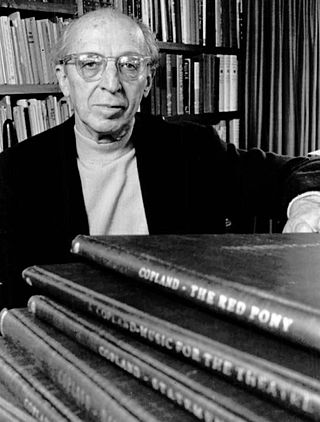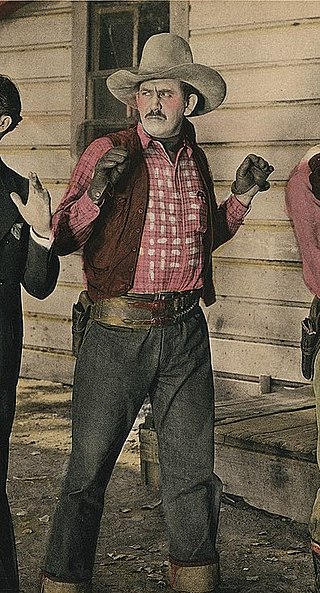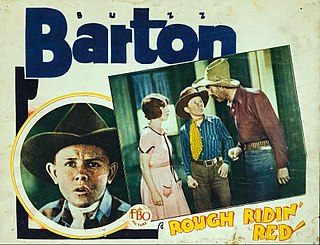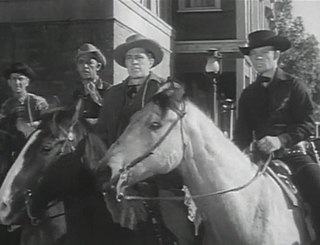Story
Setting: New Mexico and Arizona, 1870s and 1880s
The story follows the life of the infamous outlaw Billy the Kid. It begins with "The Open Prairie" and shows many pioneers trekking westward. The action shifts to a small frontier town, in which a young Billy and his mother are present. His mother is killed by a stray bullet during a gunfight and he stabs her killer, then goes on the run.
The next scene shows episodes in Billy's later life. He is living in the desert, is hunted and captured by a posse (in which the ensuing gun battle features prominent percussive effects) and taken to jail. He manages to escape after stealing a gun from the warden during a game of cards and returns to his hideout, where he thinks he is safe, but sheriff Pat Garrett catches up and shoots him to death. The ballet ends with "The Open Prairie" theme and pioneers once again travelling west.

Aaron Copland was an American composer, critic, writer, teacher, pianist, and conductor of his own and other American music. Copland was referred to by his peers and critics as the "Dean of American Composers". The open, slowly changing harmonies in much of his music are typical of what many consider the sound of American music, evoking the vast American landscape and pioneer spirit. He is best known for the works he wrote in the 1930s and 1940s in a deliberately accessible style often referred to as "populist" and which he called his "vernacular" style. Works in this vein include the ballets Appalachian Spring, Billy the Kid and Rodeo, his Fanfare for the Common Man and Third Symphony. In addition to his ballets and orchestral works, he produced music in many other genres, including chamber music, vocal works, opera, and film scores.
Western music is a form of music composed by and about the people who settled and worked throughout the Western United States and Western Canada. Western music celebrates the lifestyle of the cowboy on the open range, along the Rocky Mountains, and among the prairies of Western North America. The genre grew from the mix of cultural influences in the American frontier and what became the Southwestern United States at the time, it came from the folk music traditions of those living the region, those being the hillbilly music from those that arrived from the Eastern U.S., the corrido and ranchera from Northern Mexico, and the New Mexico and Tejano endemic to the Southwest. The music industry of the mid-20th century grouped the western genre with that of similar folk origins, instrumentation and rural themes, to create the banner of country and western music, which was simplified in time to country music.

Appalachian Spring is an American ballet created by the choreographer Martha Graham and the composer Aaron Copland, later arranged as an orchestral work. Commissioned by Elizabeth Sprague Coolidge, Copland composed the ballet music for Graham; the original choreography was by Graham, with costumes by Edythe Gilfond and sets by Isamu Noguchi. The ballet was well received at the 1944 premiere, earning Copland the Pulitzer Prize for Music during its 1945 United States tour. The orchestral suite composed in 1945 was played that year by many symphony orchestras; the suite is among Copland's best-known works, and the ballet remains essential in the Martha Graham Dance Company repertoire.

Lester Alvin Burnett, better known as Smiley Burnette, was an American country music performer and a comedic actor in Western films and on radio and TV, playing sidekick to Gene Autry, Roy Rogers, and other B-movie cowboys. He was also a prolific singer-songwriter who is reported to have played proficiently over 100 musical instruments, sometimes more than one simultaneously. His career, beginning in 1934, spanned four decades, including a regular role on CBS-TV's Petticoat Junction in the 1960s.

Charles Robert Starrett was an American actor, best known for his starring role in the Durango Kid westerns. Starrett still holds the record for starring in the longest series of theatrical features: 131 westerns, all produced by Columbia Pictures.
Eugene Loring was an American dancer, choreographer, teacher, and administrator.

John Kriza was an American ballet dancer and teacher whose long career as a principal with American Ballet Theatre made him one of the best known and most admired male dancers in the country.

Richard Theodore Adams was an American film actor who appeared in nearly 200 films between 1926 and 1952.

Charles Orbie "Slim" Whitaker was an American film actor. He appeared in more than 340 films between 1914 and 1949. He was born in Kansas City, Missouri, and died in Los Angeles, California, from a heart attack.

Have a Little Faith is a 1992 album by American guitarist Bill Frisell, his seventh album overall and fourth for Elektra Nonesuch. Musicians include Frisell, clarinetist Don Byron, bassist Kermit Driscoll, accordion player Guy Klucevsek and drummer Joey Baron. The album covers a range of American classical and popular music. The album was widely acclaimed as one of Frisell's best and as an outstanding jazz albums of the 1990s.
El Salón México is a symphonic composition in one movement by Aaron Copland, which uses Mexican folk music extensively. Copland began the work in 1932 and completed it in 1936, following several visits to Mexico. The four melodies of the piece are based on sheet music he purchased during his visits.
Rodeo is a ballet composed by Aaron Copland and choreographed by Agnes de Mille, which premiered in 1942. Subtitled "The Courting at Burnt Ranch", the ballet consists of five sections: "Buckaroo Holiday", "Corral Nocturne", "Ranch House Party", "Saturday Night Waltz", and "Hoe-Down". The symphonic version omits "Ranch House Party", leaving the other sections relatively intact.

La hija de Cólquide is a ballet score composed by Carlos Chávez in 1943–44 on commission from the Elizabeth Sprague Coolidge Foundation for Martha Graham. The title refers to the mythological character Medea, daughter of King Aeëtes of Colchis, in the story of Jason and the Golden Fleece. The ballet spawned several subsidiary works in Chávez's catalog including his Third String Quartet. When Graham eventually choreographed it, she wrote a new scenario and gave it the title Dark Meadow.
Dance Panels is a ballet composed by Aaron Copland in 1959 for a planned collaboration with choreographer Jerome Robbins. After Copland had written the score, Robbins reneged on his commitment and the performance did not take place. Three years later, Copland revised the score for a ballet by the Bavarian State Opera in Munich, Germany, where it premiered on 3 December 1963. The ballet was performed by the New York City Ballet in 1965 and the concert version received its first performance at the Ojai Music Festival the following year. According to Copland biographer Howard Pollack, Dance Panels has proven from a musical standpoint one of the composer's more accessible late scores. While some of its more dissonant moments sound similar to Copland's twelve-tone compositions, other parts recall his earlier stage and screen music. It is also the only one of Copland's six ballets not written to a specific program.

The legend of Billy the Kid has acquired iconic status in American folklore. More has been written about Billy the Kid than any other gunslinger in the history of the American Old West, while hundreds of books, motion pictures, radio and television programs and even a ballet have been inspired by his legend. Despite his enduring reputation, the outlaw himself, also known as William Bonney, had minimal impact on historical events in New Mexico Territory of the late 19th century.

Buzz Barton (1913–1980) was an American film actor. He is predominantly known for his roles as a child actor in a number of silent westerns made by the FBO studios during the 1920s. Following the introduction of sound, he mainly played supporting roles.

Luther Palmer was an American film and television actor. He appeared in over 300 films and television programs between 1929 and 1962.
Estancia is the second ballet composed by Argentinian composer Alberto Ginastera premiered in 1952 commissioned by American writer Lincoln Kirstein. Ginastera took inspiration for the ballet's plot from the epic Martin Fierro by Argentine writer José Hernández, incorporating the nationalist themes and language into his musical score. The ballet was created the same year the composer had made his acquaintance with American composer Aaron Copland. The ballet began its life as a four-part orchestral suite in 1941 before being turned in a one-act ballet.











